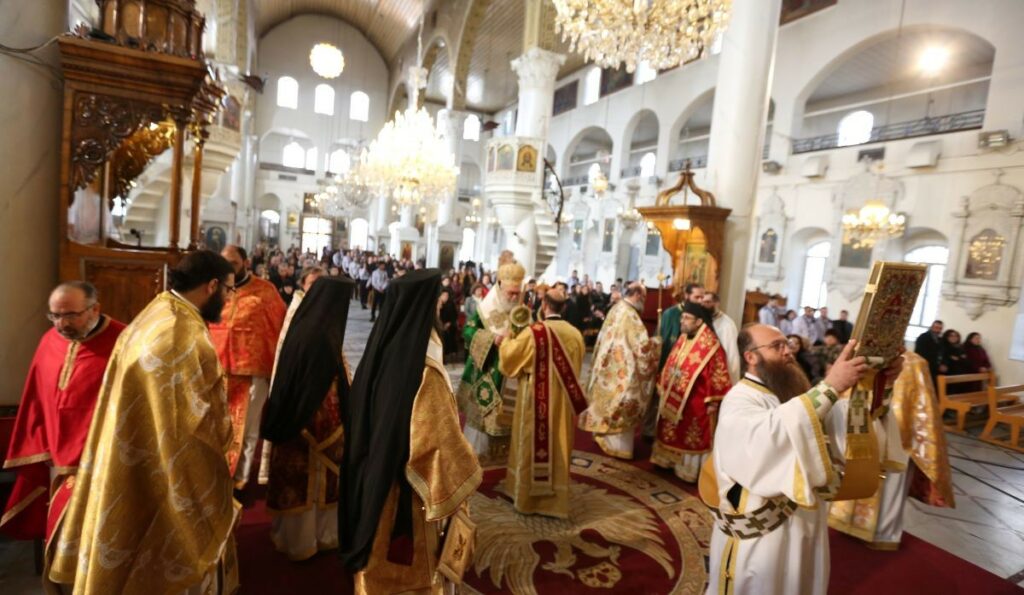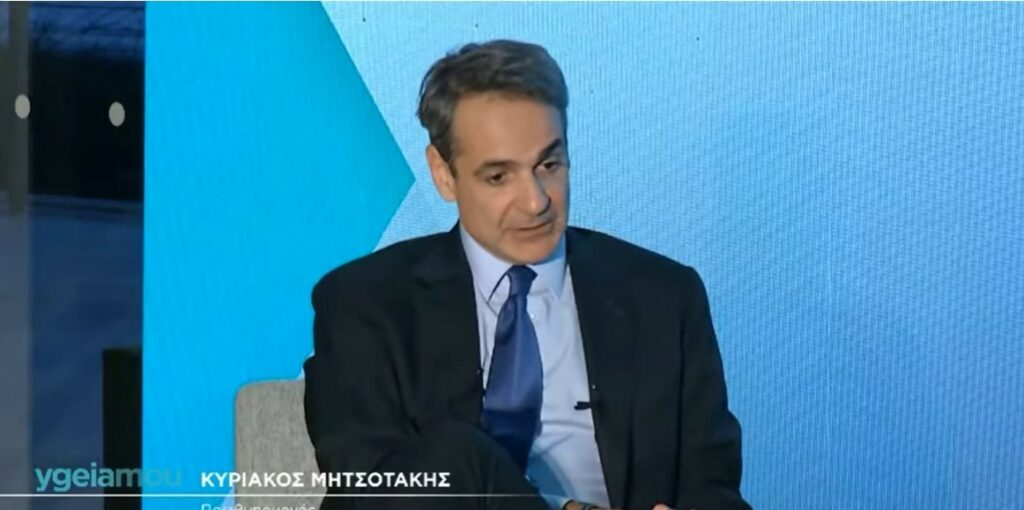
#Tags:
GreeksHellenic RepublicGREEK ORTHODOXForgotten GreeksChurch of AntiochiaMelkiteThe Levantine Greeks: The Hellenic Republic should Recognize its Forgotten Greeks in Syria and other countries

FILE PHOTO: Patriarch John X Yaziji of Antioch and All the East attends a mass held at al-Maryamiyeh Church in the mostly Christian-populated Bab Touma neighborhood in Damascus, Syria, on 25 December 2021 as part of the Christmas celebrations. EPA, YOUSSEF BADAWI
As a Syrian Christian born to a Greek Orthodox mother and married to a husband from the same group, I have a strong affinity for the Hellenic Republic, and I often try to spark conversations with Greek people in the Washington metro area, whether at the Greek restaurant, or at conferences I attend in Washington DC, or even in the Greek church.
Although I am often disappointed by the lack of information they have on the Levantine Greeks, known locally as the Rum (or Melkites), which translates as Byzantines, many of them give me the feeling that they are reuniting with their sister that they lost decades ago
The Levantine Greeks are currently the member of the Greek Orthodox Church of Antiochian, and the Melkite Greek Catholic church, they live mostly in western Syrian cities, like Damascus, Latakia, Homs, and Aleppo, and in Lebanon, Israel, and Palestinian territories (the West Bank and Gaza), and they constitute the second-largest ethnic group in the Levant, after the Sunni Arabs.
Some of their rituals and hymns are still Greek, and they look toward Greece and Cyprus with a lot of attraction.
The connection between the Levantine Greeks, Constantinople, and Athens is not limited to the Council of Chalcedon.
The Levantine Greek historian and priest Constantine Pasha asserts in his book “A Critical Research on the Origin and Language of the Melkite Romans.
”1, printed in the Library of Alexandria in 1900, that the loyalty of the Melkites to the Emperors of Constantinople was not only due to religious factors, but nationalistic and linguistic factors, as the divisions in the region were based on geography, culture, and demography.
Most of the population living in the western Euphrates and Lower Egypt were speakers of
Greek, while Aramaic was the language of Christians in the east of the Euphrates and Mesopotamia.
Greek history in the Levant dates back to the era of Alexander the Great, when Greek culture spread, resulting in the creation of Levantine Greek society due to the intermingling of the civilizations of ancient Greece and the ancient East.
Even after Arab conquest of the East and the division of the Greeks between two empires, the Levantine Greeks kept their name, even though it was the same name that was carried by the Arabs’ archenemy, which was the Byzantines in Constantinople.
After the fall of Constantinople, The Levantine Greeks reunited again with their brothers in Asia Minor and Greece during the period of the Ottoman Empire under the name “Rum Millet”, after a separation that lasted for many centuries.
With the Greek revolution in 1821, the situation of the Rum worsened, and many of them were subjected to displacement towards the liberated Greek regions and towards America, especially after their failed attempt to ignite a Greek revolution in Beirut under the guidance of Greek sailors headed by the revolutionary leader Vasos Mavrovouniotis.
After the Greek revolution, the Melkite Greeks began to adopt Arabism for fear of estrangement and persecution, and their intellectuals were among the most important theorists and philosophers of Arab nationalism, and it was a successful attempt by them to demand equality with the Muslim Arabs and to incite them against the Turks.
The Levantine Greek community has many prominent individuals who contributed greatly to the Levant and North Africa, with important intellectuals, musicians, journalists, financers and filmmakers, some of whom were Farah Antoun, Constantine Zureik, Charles Malek, Ghassan Tueni, Samir Kassir, Michel Aflaq, Antoine Saadeh, Jurji Zidan, Youssef Chahine, Mariana Marrash, and Mikhail Naimy, just to name a few. They also contributed to framing and theorizing about most of the movements in the Arabic-speaking Levant, whether in Syria, Lebanon, Egypt, or the Palestinian territories.
Despite all the struggle and all that they offered to the Arab countries that stripped them of their identity, the Levantine Greeks were not treated with equality, and they were the first people that were targeted for persecution and displacement after the so-called Arab Spring.
The Levantine Greeks do not need charitable aid, as they are one of the wealthiest and most educated groups in the region, but they need constitutional recognition, to learn the language of their ancestors, and to stay away from the many conflicts that they were involved in and entered into in order to prove their loyalty to the Arab rulers
All this will not happen. Without the effective role that Greece can play, especially in Syria and Lebanon, in Syria there is talk of a new constitution that represents all Syrian components without any mention of them, and in Lebanon they are still the most marginalized sect in the matter of political representation.
While Assad and Iran are trying to court them to use them in international arenas, and Russia to champion itself as the head of the Orthodoxy in the world and to delegitimize the Orthodox Patriarchate of Kiev, The Levantine groups in the diaspora are currently struggling to be recognized
as a nation independent of the Arabs, and today after many of them have emigrated to the West, they have a greater margin of freedom to advocate for this.
Greece is the only nation that can be trusted to back this very brilliant community, and that need to be done through educating the constituencies in Greece about the existence of their brethren in the Levant, and strive to represent and defend these people in all international forums and to use its relation with the Lebanese and Syrian government to reopen the Levantine Greek schools that was nationalized by the Government of Syria .
Turkey today is working hard to back and represent the Turkmen and Sunni Arabs, while the Western countries support the Kurds in Syria, but the Levantine Greeks or Rum has no one to protect them, and it’s only the Hellenic republic that can save this community from being extinct by living in dignity in their historic land and being recognized as an ethnic group just like the Arabs, Kurds, and the Assyrians.
*Philos senior research fellow
Ακολουθήστε τη HELLAS JOURNAL στη NEWS GOOGLEPM Mitsotakis meets with Mariupol Consul General Androulakis

